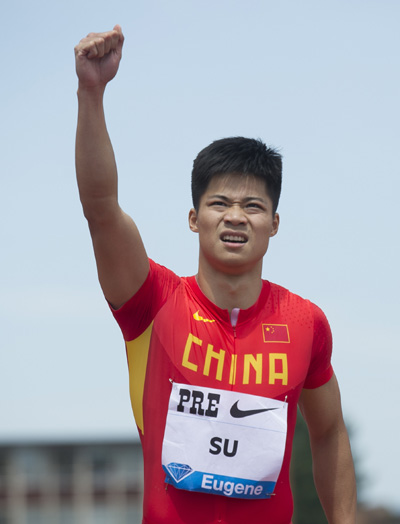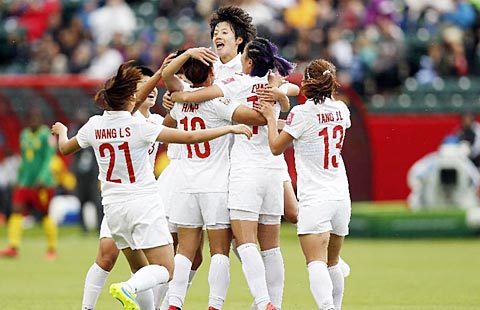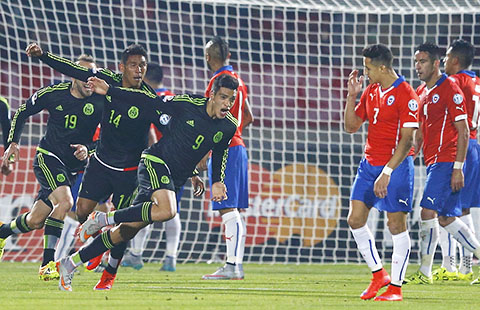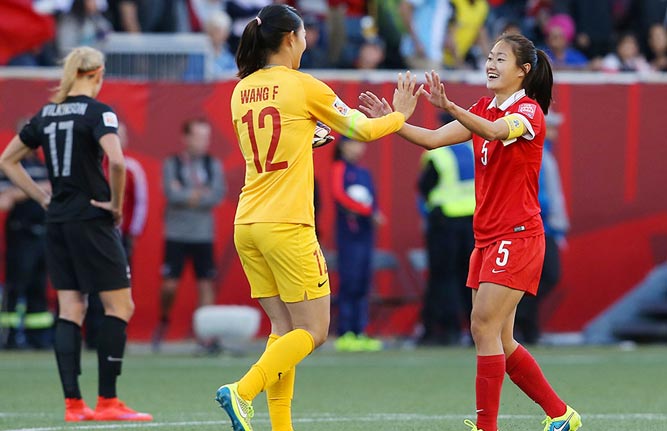9.99s is just the start for China's fastest man on 100m track
(iaaf.org) Updated: 2015-06-21 17:47
|
 |
|
Chinese sprinter Su Bingtian celebrates after clocking 9.99s to finish third in the men's 100m final at the Eugene Grand Prix in Oregon May 30, 2015. [Photo/Xinhua] |
Yuan Guoqiang said a small technical adjustment had contributed to Su Bingtian sprinting to a national record 9.99 to become the first Chinese to dip below the 10-second barrier when he finished third at an IAAF Diamond League meeting in Eugene, Oregon, US.
"When Su first began to train, he had been using his right foot to start," Yuan said. "But he always found his third step a little weak and unsteady which would affect his intermediate running and the whole rhythm. So last winter, he changed his way of starting with his left foot going forward first".
Su has inherited good sports genes from his family. Among his 11 cousins, six are retired track and field athletes. But his height of 1.72m is arguably a disadvantage for a sprinter.
"He normally takes 48 strides to cover 100 meters," said Yuan. "When he clocked 10.06 in 2013, he only needed 47-and-a-half strides. I think if he can extend the length of his stride, he may find more room to progress.
"But longer strides could also lead to lower frequency. That is a tricky problem; we are still trying to find the best balance for him.
"No matter what, if he can consistently run faster than 10.10, I think he will make further improvement."
When Su was first added to his junior high school's track and field team, he rarely trained or competed. Primarily, he carried bags for his senior teammates and watched them run.
Nobody at that time, including Su, believed that the small boy could one day become the fastest man in the world's most populous country.
Born in a rural area in China's south-eastern province of Guangdong, Su started athletics training in 2003. After most of his senior teammates graduated, Su got more opportunities to compete and gradually proved his potential with his explosive power and strength.
"When I started to compete for my school I achieved quite good results, breaking a series of school records," said Su.
In 2004 he was selected for the sports school in the city of Zhongshan and two years later was promoted to the provincial team, where he met his current coach Yuan.
"When I first saw Su, I thought he was a diamond in the rough," said Yuan. "It would be bragging to say I knew he would break the 10-second barrier one day. But I did see his potential to develop to a top runner in China and maybe cut a figure on the continental stage.
"He had a good rhythm and was already a double silver medalist in the 100m and 200m at the provincial sports meets although he was still a junior, with a 100m personal best of 10.59."
Yuan set China's first national record of the digital timing era, running 10.61 in 1978 before improving to 10.52. What Su can learn from him is not only running technique but also the determination to become a champion.
"Yuan is a very experienced coach, one of the best in the country," said Su. "I have learned a lot from him and most importantly I am really pleased to train with a coach who is from the same area."








